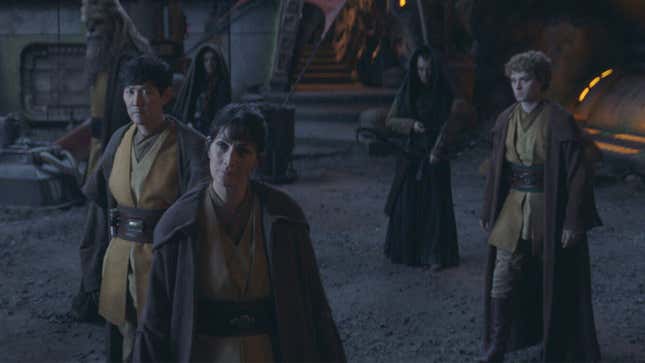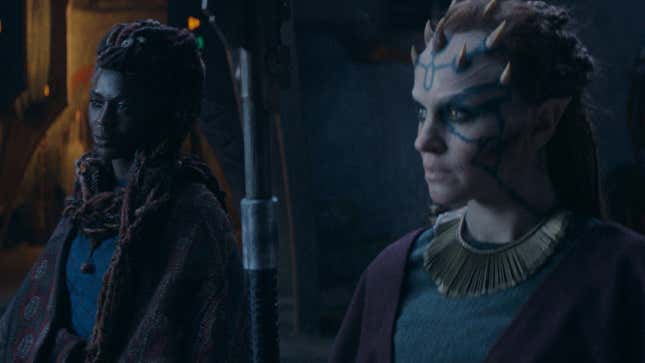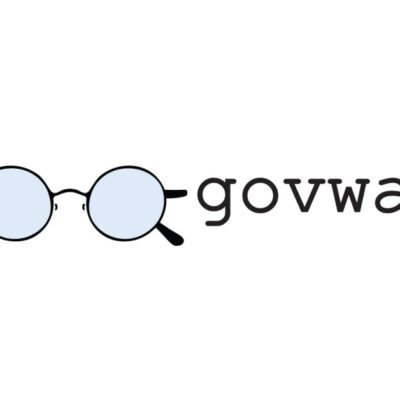The Acolyte, the new Disney+ Star Wars series set in the High Republic era, has been open about its intentions from the jump: portray the Jedi Order at the height of its power and show how they are responsible for their own fall from grace, the same fall we watched play out in the prequels over 20 years ago. But despite The Acolyte’s consistency in depicting that vision, the fetid Sarlacc pit that is a certain corner of Star Wars fandom continues to insist that the series is breaking canon, destroying lore, and otherwise ruining a piece of media they’ve made their entire personality. The latest episode of The Acolyte only fueled those fires, even though it echoes sentiments and sorrows first seen in 1999’s The Phantom Menace.
Episode seven, titled “Choice,” jumps back to the events we first saw in episode three: four Jedi encounter a coven of witches (and two twin girls, Mae and Osha) on Brendok, a planet believed to be devoid of life, administer the Jedi test to the Force-sensitive girls (only Osha passes), and then chaos ensues. In the earlier episode, it appears that Mae (who is more loyal to the coven than her sister) locks Osha in her room and starts a fire to keep her from leaving, and that fire kills their mother and all the other witches. Mae and Osha find each other in the burning building just for Mae to apparently fall to her death while Osha is rescued by Sol (Lee Jung-jae) and brought to Coruscant to begin training in the Jedi arts.
Read More: Star Wars: The Acolyte Is Doing A Different Kind Of Fan-Service, And It Rocks
Before this latest episode, we knew things were more complicated than that. The Jedi didn’t seem wholly innocent, plus Mae survives and is on a mission to kill all four of them who were there that day, and Osha eventually leaves the Order for reasons unknown. But now we know exactly what happened on that fateful night, and it paints a stark picture of the Jedi’s fallibility, the dangers of assumption, and the flaws of tying a religious group to a governing body.

The illusion of choice
Sol, who first spotted young Mae and Osha in the forest on Brendok and followed them into their coven’s safe haven, believes the witches are a dangerous, dark-aligned group who could be sacrificing children—and to be fair, his perspective is somewhat damning. Their behavior could certainly look strange when, since childhood, you’ve been part of a group that believes only its own version of praying or practicing religion is valid. Naturally, you’d be freaked out by 50 or so women chanting in front of a giant, scary hole in the ground.
But Sol’s misunderstanding of what is clearly a much more complicated situation than “witches bad” leads him to believe that he must save the girls, especially Osha, who he thinks is meant to be his padawan. Though Carrie-Anne Moss’ Master Indara tells him not to meddle in these affairs after the girls take the Jedi test, and warns him of the dangers of getting involved, Sol refuses to listen, essentially egging on her frustrated padawan Torbin (Dean-Charles Chapman), who hops on a speeder bike to “rescue” Osha and Mae so that he can go back to Coruscant.
Things go downhill fast, with their arrival kicking off a massive fight during which Osha and Mae’s mother, coven leader Aniseya, is killed by Sol as she begins using magic in a way that clearly scares him. The witches then possess Wookiee Jedi Kelnacca, who beats the hell out of both Sol and Torbin, only for the coven to be presumably knocked unconscious by Indara, who Force-shoves them out of Kelnacca’s head. Sol, still desperate to save the girls, discovers them on opposite sides of a broken, teetering walkway, and chooses to save just Osha, as he can’t physically hold both sides of the walkway up.

The Jedi’s flaws
After the episode aired, the internet lit up with people complaining about its portrayal of the Jedi and the reveal of its “true villain,” Sol. Reading those comments and seeing the angry YouTube thumbnails reminded me, once again, of the rapid deterioration of our collective cultural memories—we’ve seen this exact thing happen before in Star Wars: The Phantom Menace.
Then, Liam Neeson’s Qui-Gon Jinn refused to listen to the Jedi Council or the worries of his padawan (Ewan McGregor’s Obi-Wan Kenobi) after meeting a young, Force-sensitive Anakin Skywalker on Tatooine. Anakin had the highest midichlorian count Qui-Gon had ever seen, and his mother insisted that he had no father—just like Osha and Mae’s Force footprint showed that they were immaculately conceived. Both Qui-Gon and Sol are blinded by this potential, by this unknown Force power, and both ignore the warning signs: the kids are too old, they have no business meddling, etc. Qui-Gon even chooses to leave Anakin’s mother to a life of slavery when their owner refuses to part with her, negotiating for “the boy,” much like how Sol chooses Osha over Mae.
Aniseya even predicts the fall of the Jedi due to their own hubris, saying, “someday those noble intentions you all have will destroy every Jedi in the galaxy.” Anakin’s mistreatment at the hands of the Jedi turned him to the Dark Side, leading to him helping Emperor Palpatine bring about the events of Order 66. All because one Jedi couldn’t leave a Force-sensitive child alone.
The major difference between the Jedi’s mistakes in The Phantom Menace and The Acolyte is that Sol’s meddling is far worse. Qui-Gon rescues a child from a life of slavery, while Sol tries to steal two children from their family. Both of these events tell us that the Jedi savior complex can be a helluva drug, especially when some of these supposedly big-minded people prove to be worryingly myopic. If you’re mad about The Acolyte episode seven, you haven’t been paying attention to Star Wars at all.
The final episode of The Acolyte season one airs Tuesday, July 16th at 9pm E.T. on Disney+.
.





